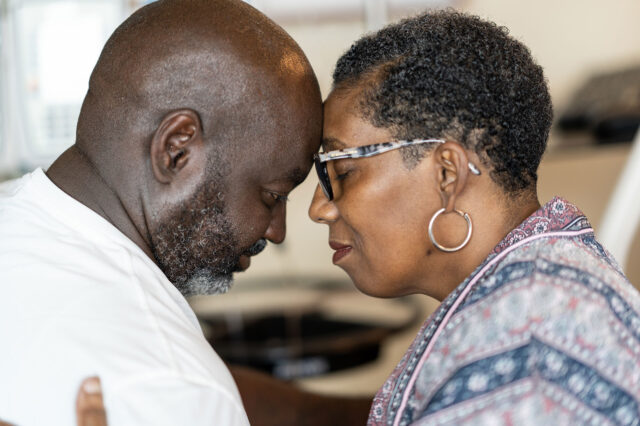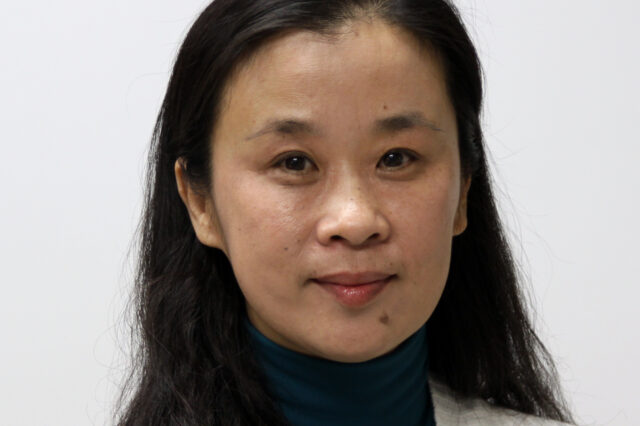The UF Health Cellular Immunotherapy Program offers a variety of cellular immunotherapy products for the treatment of various blood cancers and solid tumors. The type of product used depends on the type of cancer and the patient’s overall health.
We offer CAR T-cell therapy, one of the most advanced and effective cancer treatments available today. CAR T-cell therapy is a revolutionary new approach that harnesses the power of a patient's own immune system to fight cancer. We offer both commercially available/approved CAR T-cell therapy products and new products on clinical trial.
We also offer other cutting edge cellular immunotherapies, including Natural Killer (NK) cell-based cancer immunotherapy and tumor infiltrating lymphocyte (TIL) therapy, on clinical trial. At UF Health, we are committed to providing the highest quality of care to our patients. Our Cellular Immunotherapy program is led by a team of expert oncologists, immunologists and cellular therapy specialists who work together to ensure that each patient receives personalized, comprehensive care.
Are you a candidate for cellular immunotherapy?
Candidacy for therapy depends on a few factors such as cancer type, previous treatments and overall health. Eligibility will be assessed by your physician during the initial consultation. Cellular immunotherapy may be used in the treatment of many types of cancers, including but not limited to:
- B-cell acute lymphoblastic leukemia (ALL)
- Chronic lymphocytic leukemia (CLL)
- Diffuse large B-cell lymphoma (DLBCL)
- Follicular lymphoma (FL)
- Mantle cell lymphoma (MCL)
- Primary mediastinal B-cell lymphoma (PMBCL)
- Multiple Myeloma
What is CAR T-cell therapy?
CAR T-cell therapy (Chimeric Antigen Receptor T-cell therapy) is a type of immunotherapy that uses a patient's own T-cells (a type of white blood cell) to attack cancer cells in the body. This therapy involves collecting a patient's T-cells from their blood, engineering them in a laboratory to produce chimeric antigen receptors (CARs) on their surface, and then infusing these modified T-cells back into the patient's bloodstream.
The CARs are designed to recognize and bind to specific proteins (called antigens) that are present on the surface of cancer cells. Once the CAR T-cells bind to the cancer cells, they trigger a response that leads to the destruction of the cancer cells.
CAR T-cell therapy has shown remarkable success in treating certain types of blood cancers, such as acute lymphoblastic leukemia (ALL), non-Hodgkin's lymphoma, and Multiple Myeloma. In clinical trials, CAR T-cell therapy has been able to induce remissions in a significant number of patients who had previously failed other treatments, including chemotherapy and stem cell transplant.
One of the key benefits of CAR T-cell therapy is its potential to provide long-lasting remissions, even in patients who have advanced or refractory cancers. Additionally, because the therapy targets cancer cells specifically, it can spare healthy cells from damage and potentially reduce the side effects commonly associated with traditional cancer treatments.
Overall, CAR T-cell therapy represents a promising new approach to cancer treatment, and ongoing research is exploring its potential in treating a wider range of cancer types.
What is bispecific T cell engager (BiTE) therapy?
BITE is a targeted therapy that connects patients' own T cells (immune cells) to cancer cells.
TECVAYLI™ (teclistamab-cqyv) is a bispecific B-cell maturation antigen (BCMA)-directed CD3 T-cell engager indicated for the treatment of adult patients with relapsed or refractory multiple myeloma who have received at least four prior lines of therapy, including a proteasome inhibitor, an immunomodulatory agent and an anti-CD38 monoclonal antibody.
Why choose UF Health for CAR T-cell therapy and other cellular immunotherapies?
At UF Health, we offer the most advanced and comprehensive cellular immunotherapy program in the region. Our team of experts has extensive experience in performing CAR T-cell therapy and conducting clinical trials. We are dedicated to providing the highest quality of cancer care to our patients.
We are committed to personalized medicine, and our team works closely with each patient to develop a treatment plan tailored to their specific needs. At our large academic center, we also offer a range of support services to help patients and their families navigate the treatment process, including financial counseling, social work and psychological support.
Contact us today at (352) 733-0972 to schedule a consultation with one of our experts. Together, we can fight cancer and help you get back to living your life to the fullest.
Clinical trials
A Multi-Center, Open-Label, Phase 1/2 Clinical Trial to Evaluate the Safety and Anti-Tumor Activity of AB-101 Monotherapy and AB-101 Plus Rituximab in Patients with Relapsed/Refractory Non-Hodgkin Lymphoma of B-Cell Origin.
AB-101 is an off-the shelf, allogeneic cell product made of "natural killer" cells, also called NK cells. White blood cells are part of the immune system and NK cells are a type of white blood cell that are known to kill cancer cells. This clinical trial will enroll patients with relapsed/refractory non-Hodgkin lymphoma of B-cell origin.
Magnestismm (A BITE) trial- Relapsed/Refractory Multiple Myeloma
The purpose of this study is to evaluate the safety of a step-up dosing approach (starting with low doses followed by higher doses) of the study medicine (elranatamab) in participants with multiple myeloma that has come back after responding to treatment or has not responded to treatment (relapsed/refractory multiple myeloma). This study will also look at the safety and efficacy of different doses of elranatamab, as well as different intervals between doses. Elranatamab is a bispecific antibody: binding of elranatamab to CD3-expressing T-cells and BCMA-expressing multiple myeloma cells causes targeted T-cell-mediated cytotoxicity.


